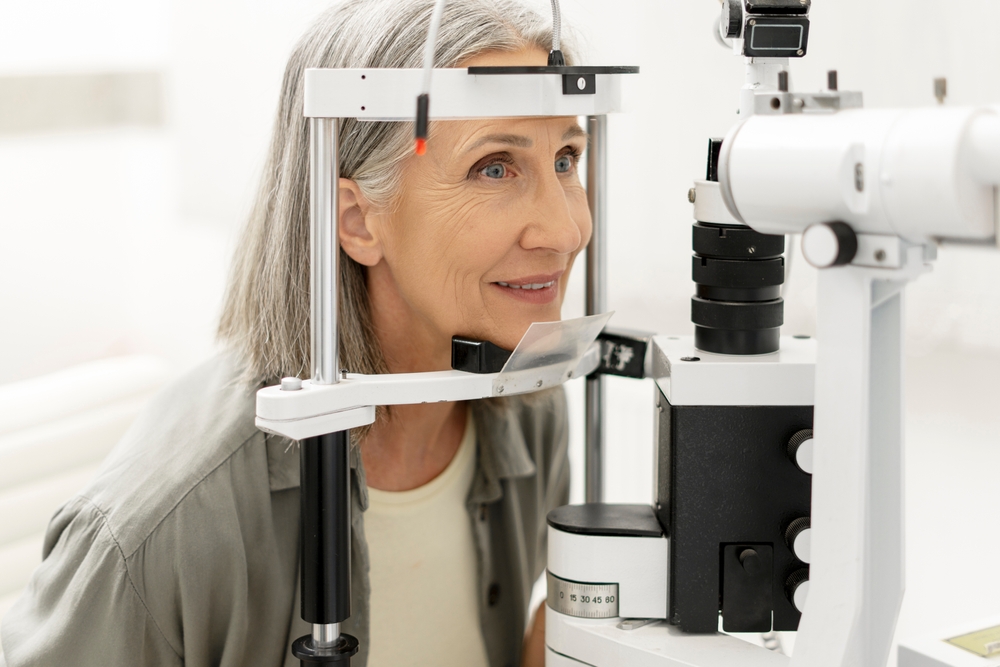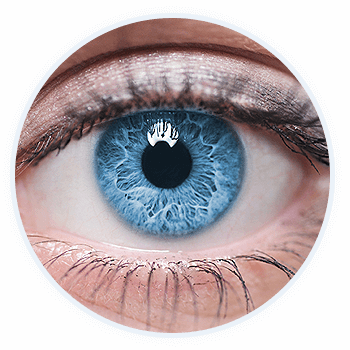
Did you know that many eye conditions begin without any noticeable symptoms? These so-called “silent” eye diseases can progress quietly, causing significant and even irreversible damage before you realize anything is wrong.
Regular eye health exams are your best defense. They can catch issues early—often before symptoms arise—helping protect your vision for the long term. Keep reading to learn why consistent eye health check-ups are so important!
Why Do Regular Eye Health Exams Matter?
Many eye diseases develop gradually and without noticeable symptoms in the early stages. That’s what makes them so dangerous—they can quietly progress and cause permanent damage before any warning signs appear.
Conditions like glaucoma, macular degeneration, and diabetic retinopathy are often asymptomatic at first, and many people don’t experience symptoms until they’ve already lost significant vision. The good news? You can help prevent that outcome with regular eye health exams.
Frequent eye health exams allow your eye doctor to detect these conditions early—before symptoms appear and when treatment is most effective. Early diagnosis and timely treatment can slow or even stop the progression of many silent eye diseases, helping to preserve your vision and your quality of life.
Your Eyes Reflect Your Health
Your eye health is closely connected to your overall health. In fact, a comprehensive eye health exam can reveal early signs of serious health issues you might not be aware of yet, including:
- Diabetes
- High cholesterol
- High blood pressure
- Neurological conditions (like brain tumors or multiple sclerosis)
- Autoimmune disorders (such as lupus, rheumatoid arthritis, or Sjogren’s syndrome)
The sooner these conditions are identified through a routine eye health exam, the better your chances of managing them effectively and avoiding complications.
Which Silent Eye Diseases Can Be Detected Through Eye Health Exams?
Glaucoma
Glaucoma is often called the “silent thief of sight.” It can damage your optic nerve without causing pain or early symptoms. The optic nerve plays a critical role in your vision by transmitting signals from the retina to the brain. Left undetected, glaucoma can lead to irreversible vision loss. Regular eye health exams are key to catching it early.
Diabetic Retinopathy
Diabetic retinopathy is a complication of diabetes. This condition occurs when high blood sugar damages the blood vessels in the retina. It can cause blurred vision, floaters, and even blindness if left untreated. Regular eye health exams are essential for identifying diabetic retinopathy in its earliest stages, when treatment is most effective.
Macular Degeneration
Macular degeneration is a condition that affects your central vision and can make it difficult to read, drive, recognize faces, or use a computer. It often develops without symptoms in the beginning, but routine eye health exams can catch early changes and help preserve your vision.
How Often Should You Have Eye Health Exams?
Children ages 6–18 should have comprehensive annual eye health exams, as clear vision plays a crucial role in learning and development.
For adults ages 18–39, exams are recommended every couple of years, while those between ages 40–64 should have an eye health exam at least every two years.
If you’re 65 or older, annual eye health exams are advised to monitor for age-related conditions.
However, certain factors may require more frequent visits:
- If you wear glasses or contact lenses: yearly exams are recommended
- If you experience symptoms like: eye pain, sudden flashes or floaters, or signs of infection, see your eye doctor right away
- If you have conditions like: high blood pressure, diabetes, or a family history of eye disease, you may need more frequent exams
After your initial eye health exam, your eye doctor will recommend a personalized exam schedule based on your specific needs. Following their guidance is one of the best ways to protect your long-term eye and vision health.
Protect Your Vision
If it’s been a while since your last eye health exam, now’s the time to prioritize your vision. At VisionPoint Eye Center in Bloomington, IL, our experienced eye doctors are here to help you stay proactive about your eye and overall health.
Schedule your appointment today to take the first step toward lifelong eye health.










